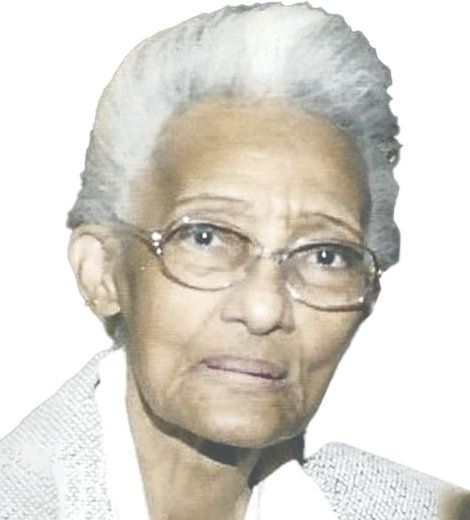
Quick Wiki
- Full Name Gertie Davis
- Nationality American
- Father Nelson Davis
- Mother Harriet Tubman
- Birth Date 1874 (Exact birthdate undisclosed)
- Mother's Occupation Abolitionist and political activist
Gertie Davis | Biography
Adopted in 1874 after Harriet and Nelson got married in 1869Harriet Tubman married Nelson Davis, a Civil War veteran, on 18 March 1869. They met at her boarding house in Auburn. The couple then adopted a baby girl, Gertie, in 1874.
Gertie Davis is the adopted daughter of Harriet Tubman, famed as the “Moses of her people.”
Who Is Gertie Davis?
Born in 1874, Gertie Davis was the adoptive daughter of Harriet Tubman and her second husband, Nelson Davis. She was adopted in 1874 after Harriet and Nelson got married in 1869.
Harriet’s first husband, John, stayed in Maryland instead of following his wife north, later remarrying. After the Civil Combat, Harriet also remarried a war soldier named Nelson Davis, 22 years younger. Later, the couple adopted Gertie Davis.
Gertie Davis’ Mother Bio
Harriet Tubman was born as Araminta Harriet Ross into slavery in Maryland in the 1820s. She worked in the house as a youngster but was soon sent out to undertake arduous fieldwork. Following the sale of three of her sisters, it was rumored that she, too, would be sold to the cotton fields further south. She realized she had to depart or never see her family again, so she set out on her own in 1849.
She escaped to the North in 1849, becoming the Underground Railroad’s most renowned “conductor.” On this sophisticated hidden network of safe homes, Harriet put her life on the line to release hundreds of relatives and other slaves from the plantation system. Harriet, a famous abolitionist before the American Civil War, also aided the Union Army throughout the conflict, serving as a spy, among other things.
Also Read: John Boehner - Networth, Age, Politics & Congress
Harriet traveled from the South to the North on the Underground Railroad network 19 times between 1850 and 1860. She led over 300 individuals from slavery to freedom, including her parents and several siblings, receiving the moniker “Moses” for her efforts.
Harriet dedicated her life after the Civil War to assisting impoverished former slaves and the elderly. In 2016, the United States Treasury Department revealed that Harriet would substitute Andrew Jackson on the center of a new $20 bill in commemoration of her life and public demand.
Harriet's Life After Civil War
After the Civil War was over, Harriet returned to Auburn, New York. Her parents became old and had a strong support system during her absence, but they still required financial assistance from her daughter.
Her brothers and their families finally moved from St. Catharine's to Auburn. Her mother and father died in 1871 and 1880, respectively, because of old age.
Compensation for the Civil War Services
Harriet arrived in Auburn and asked for government compensation for her Civil War service, but her application was incomplete because of a lack of formal paperwork. She could overturn it with the support of some friends, but it took her over three decades to triumph.
Her friends discovered Harriet's financial requirements, and community leaders wrote letters to newspapers arguing that she deserved a government pension.
Later, Harriet could claim an $8-a-month veteran's widow pension after her second husband, Nelson Davis, died in 1888. It was the first time she had a consistent and predictable income throughout her life.
Women's Rights Movement by Tubman
Harriet gave lectures and attended meetings to support the Women's Rights Movement. Friends who had helped her during her time on the Underground Railroad later became movement leaders.
She also gave speeches in New York, Boston, and Philadelphia supporting women's suffrage. Harriet was particularly concerned about the rights of African American women. Tubman was invited to speak at the National Association of Colored Women's first meeting in 1896.
First Husband
Harriet married John Tubman, a free Black man, in 1844. Around half of the African Americans on Maryland’s eastern shore were free during that time, and it was common for a household to include both free and enslaved members. There is little information about John or his marriage to Harriet.
But she soon found out that he had married another lady and had no intention of leaving. Harriet considered storming their house but ultimately concluded that John wasn't worth it. John chose to stay in Maryland with his new wife rather than travel to the Underground Railroad with Harriet. So instead, she tracked out a group of fugitive slaves and transported them to Philadelphia.
Second Husband
Harriet then married Nelson Davis, a Civil War veteran, on 18 March 1869. They met at her boarding house in Auburn. The couple then adopted a baby girl, Gertie, in 1874. They had four children together, out of which the oldest three died as infants. Gertie May Slater Davis was their youngest child. She is buried with Joseph and Sarah (the other two children) in the same cemetery.
How Did Gertie Davis’ Mother Die?
Harriet died of pneumonia on 10 March 1913, surrounded by friends and family at 93. Her head injuries, which she acquired early in her life, became increasingly severe and disruptive as she grew older. She underwent brain surgery at Massachusetts General Hospital in Boston to relieve the symptoms and “buzzing” she was regularly experiencing. Harriet was eventually admitted to the nursing home that was named for her. She was laid to rest with military honors in Auburn’s Fort Hill Cemetery.
How Did Gertie Davis’ Father Die?
Nelson Davis passed away in 1888 of tuberculosis.
